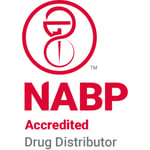Expiration dating starts as early as the FDA application process. The FDA requires new drug applicants to submit drug stability testing data along with recommended expiration dates and storage conditions at the same time they apply for FDA approval.
Based on FDA guidance found in Changes to an Approved NDA or ANDA, “… the manufacturer of an approved drug product may extend the expiration date for the drug product based on their own testing and acceptable data in accordance with a protocol approved in the new drug application (NDA) or abbreviated new drug application (ANDA).”
How the FDA determines expiration dating
Under the Shelf-Life Extension Program (SLEP), the FDA conducts testing for certain products stored in federal stockpiles in environmentally controlled locations. In these cases, the FDA may offer expiration date extensions under distinct circumstances and conditions.
Due to increased demand for repackaged oral solids to unit-dose packaging, the FDA further revised draft guidance for good manufacturing practice regulations. According to an article published by the Regulatory Affairs Professional Society, (RAPS), “FDA notes that this guidance addresses repackaging of prescription and over-the-counter solid oral dosage form drugs into unit-dose containers by commercial pharmaceutical repackaging firms that are required to register with FDA.”
This was addressed again in July 2020, as “the increase in unit-dose repackaging has led to questions regarding stability studies and appropriate expiration dates for these repackaged products.”
What expiration dating means for hospitals and health systems
The FDA requires that pharmaceutical manufacturers conduct stability studies on each drug sold to justify expiration dating put on their product (typically two-year dating). Similarly, new FDA draft guidance will require hospital pharmacies to conduct similar risk-based stability studies to substantiate up to one-year expiration dating on drugs they repackage in-house. Otherwise, in the absence of a risk-based approach to stability studies, medications must be repackaged with six-month expiration dating (or 25% of the remaining manufacturer expiration date, whichever is less.) This means a drug with one-year manufacturer dating remaining will only get a maximum of three-months dating when repackaged by a hospital pharmacy.
In simpler terms, the FDA’s limited expiration dating can increase costs and waste for hospital pharmacies. According to an article in the Chicago Tribune, hospital pharmacies nationwide are already prospectively losing roughly $800 million a year in drug waste alone. This number is likely to increase with the new FDA guidance. When expiration dating is 30 days or less, many hospital pharmacies remove the drug from the automated dispensing cabinets, causing additional labor for removal of expiring drugs and replacing them will longer-dated products. This also means your pharmacy will have to repackage medications more often — increasing your packaging labor and cost.
How Safecor Health can help
What can a hospital or health system do to avoid so much pharmacy drug waste? One of the simplest solutions is finding a unit-dose repackaging partner that has completed the stability studies to support expiration dating. Safecor Health is an FDA-registered packager, which means we meet FDA requirements including:
- Cleaning validation and cross-contamination prevention
- Retention samples and batch control records documentation
- Labeling and bar coding standardization
- Employee training and standard operating procedures
- Packaging materials that comply with guidelines for water vapor and light transmission
- Quality control standards
- Hazardous medication handling
In addition, Safecor Health can help reduce hospital costs related to:
- Limited expiration dating
- Repackaging errors
- Monitoring and managing expiring inventory held within automated dispensing cabinets
- Complying with increasing regulatory burdens — like hazardous drug packaging and stability study costs
Wasted product due to incorrectly packaged medication or limited expiration dating can significantly increase cost in your pharmacy. In fact, one health system calculated their initial cost to package oral solids in-house at $0.18 per dose (including materials, labor, equipment, etc.). When they factored in expired drug cost due to FDA six-month expiration dating guidance, their actual cost-per-dose was close to $0.40 per dose — more than double their cost to repackage the drug. Yikes!
With so many FDA guidelines to follow, trusting your facility’s unit-dose medications to a repacking partner like Safecor Health makes so much sense. Do you have more questions? Download our free eBook, How to Make Your Pharmacy Compliant with FDA Requirements.
https://www.fda.gov/media/70985/download
https://www.safecorhealth.com/resources/ebooks/fda-compliance-ebook/



